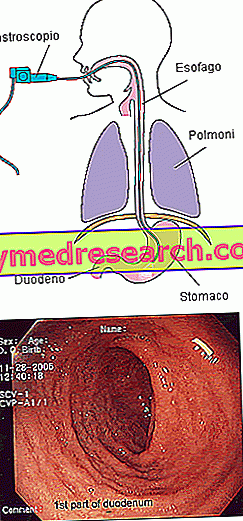Related articles: Dizziness
Definition
Dizziness is a feeling of impending fainting, dizziness, instability and a vague sense of floating head. Sometimes it is possible to experience nausea, vomiting and balance problems. Unlike vertigo (feeling of movement of oneself or the surrounding environment), which is sometimes confused, dizziness is a sudden and often transient disorder, not always indicative of an ongoing disease. In fact, dizziness can also occur when you suddenly get up from a lying position or for a temporary reduction in blood pressure or blood glucose. Furthermore, dizziness can be caused by dysfunctions of the neurological, cardiovascular and / or gastrointestinal apparatus, while vertigo is linked to disorders affecting the ear, the vestibular apparatus and the nervous system.
Dizziness can manifest itself in the presence of dehydration, sudden changes in blood pressure, anemia, hypoglycemia, prolonged fasting, heavy menstrual flow, pregnancy, colds, sinusitis, migraine, headache and cervical arthrosis. Dizziness can be a first sign of stroke, atherosclerosis and any other condition that hinders cerebral flow. Occasionally, they can occur in panic attacks, hyperventilation, anxiety and stress. Smoking, alcohol abuse and the use of CNS drugs can also cause dizziness.
Possible Causes * of Dizziness
- Anemia
- Brain aneurysm
- angiodysplasia
- Anxiety
- Cervical osteoarthritis
- Panic attack
- Transient ischemic attack
- Botulism
- Headache
- Digestive congestion
- Major depression
- Diabetes
- Bipolar disorder
- Migraine
- Tick-borne encephalitis (TBE)
- Japanese encephalitis
- Stroke
- Food intolerance
- Cerebral ischemia
- Lyme disease
- myelopathy
- Cooley's disease
- Cold
- Chronic fatigue syndrome
- Fibromyalgia syndrome
- Sinusitis
- Cervical spondylosis
- Cervical stenosis
- Spinal stenosis
- thalassemia



